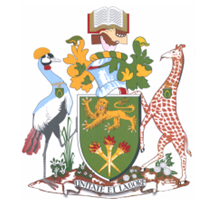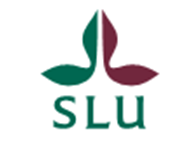Overview


Memorandum of Understanding
Between
University of Nairobi
and
the Swedish University of Agricultural Sciences
on collaboration in relation to the AgriFoSe2030 Programme
With this Memorandum of Understanding (MoU) the University of Nairobi (UoN) and the Swedish University of Agricultural Sciences (SLU) (the “Parties”) intend to promote and facilitate collaboration on academic and research-related activities in line with the objectives of the AgriFoSe2030 programme. The collaboration as outlined in this MoU builds on each Party’s objectives, without inferring any legally binding obligations.
Scope
The parties intend to collaborate on, for example:
- Organization of academic and scientific activities such as workshops, courses, and seminars;
- Development of training and materials in systematic reviews and translation of science to policy;
- Exchange of researchers;
- Participation in AgriFoSe2030 projects aiming to translate science into policy and practice
Implementation
To implement this MoU, the following is mutually understood:
- Proposals and decisions of collaborative work will be submitted through the normal procedure of each Party
- Each University will nominate one of its staff members as a contact person for this MoU.
- Any specific collaboration shall be governed by its own agreement and managed by designated staff members.
Entry into force and termination
This MoU shall enter into force upon signature by both Parties and remain in force for a period of four (4) years (2020-2023). It may be terminated by either Party giving six (6) months’ notice to the other Party in writing. The MoU may be amended or extended by mutual consent in writing by the two Parties.
Signed for
Swedish University of Agricultural Sciences University of Nairobi
------------------------------------------------ ------------------------------------------------------
Sara Gräslund Prof. Willis Oluoch-Kosura
Head of SLU Global Department of Agricultural Economics
Date and place Date and place
----------------------------------------- 05th December 2020, Nairobi
AgriFoSe2030 II Project Concept Note
- Duration: 2020 – 2023 (4 years)
- Target areas: West Pokot and Samburu Counties in Kenya
- University of Nairobi Team
- Prof. Willis Oluoch-Kosura – Department of Agricultural Economics
- Dr. David JakindaOtieno - Department of Agricultural Economics
- Dr. Stephen Mureithi – Department of LARMAT
- Dr. Jane Mutune – WangariMaathai Institute
- Proposed Thematic Areas for Collaboration
The University of Nairobi team proposes to structure the collaboration in a way that addresses each of the four AgriFoSe2030 program challenge areas in a cross-cutting manner. This will entail developing and implementing a comprehensive project in which different themes that focus on multiple challenges are incorporated. In order to achieve each stated theme, different forms of multi-stakeholder and multi-institutional working arrangements will be explored so as to bring on board a rich variety of expertise. Different specific outcomes are expected from each theme.
Three main themes will be addressed in the proposed project.
- Project Theme 1:Promoting the transformation of institutions for enhanced competitiveness of livelihoods and food security in the drylands
Project Purpose: To support the transformation of rural institutions so as to improve market access, the competitiveness of livelihood strategies, and ensure food and nutrition diversity and security.
Project Outcomes for Theme 1:
Outcome 1:Pastoralists supported to transformation from subsistence to commercial enterprises through reduction of market barriers, capacity building on market-led production, and networking of county planners with external markets for livestock products.
Outcome 2: Increased value addition of key commodities in the counties through training, peer/exchange learning, and exhibitions to improve competitiveness.
Outcome 3:Improved efficiency of value chains through capacity building of different actors on implementation, review, and compliance with relevant practices, rules, and procedures.
Outcome 4:Food and nutrition diversity enhanced through recognition, documentation, and prioritization of indigenous foods (dryland crops, livestock, and wild fruits) in county food security policies and budgets.
Outcome 5: Strengthened role of devolved governance units in market infrastructure development and enabling policy formulation that is supportive of the livestock-based economy.
- Project Theme 2: Enhancing resilience of livestock-based livelihoods in Northern Kenya through Sustainable Rangelands Management
Project Purpose: To demonstrate the potential of science, technology, and innovations in improving the natural resource management in drylands for enhancing resilience in livestock-based livelihoods
Project Outcomes for Theme 2:
Outcome 1: Pastoralists applying sustainable rangeland management approaches to manage their rangelands.
Outcome 2: Rangelands and pastures (improved) altered to increase productivity, maintain ecosystem function, resilience and sustainability.
Outcome 3: Livestock production enhanced through capacity building of both pastoralist and agro-pastoralist, and extension workers (for improved natural resource management best practices)
Outcome 4 specific to Samburu: Pastoralists and agro-pastoralist communities controlling invasive species through utilization as animal feeds and energy
- Project Theme 3: Improving agricultural productivity and ecosystem functioning
Project Purpose: To facilitate enhanced agricultural productivity through sustainable ecosystem management that assures food security and minimizes resource conflicts.
Project Outcomes for Theme 3:
Outcome 1:Enhanced ecosystems regeneration and livelihood support through capacity building on commercial agroforestry.
Outcome 2: Reduced gender-based poverty through training on small-scale farm innovations that are accessible to women.
Outcome 3:Reduced natural resource-based conflicts (especially triggered by competition for water and pasture) through capacity building on locally adaptable water harvesting techniques and farm diversification to resilient crops.
- Key Activities
Each of the proposed themes shall be accomplished through various activities including the following:
- Stakeholder mapping and needs assessment at county level (West Pokot and Samburu) with specific focus on livelihood challenges at community level and interventions that policy makers are looking for.
- Synthesis of policy recommendations from previous research work, development reports and evaluation reports in order to identify gaps in implementation.
- Training of young researchers and postgraduate students on needs-based research, writing of policy briefs, and communication of scientific results in community-relevant formats.
- Training of county staff on policy implementation, monitoring, and evaluation.
- Community-level meetings on priority setting and development project review.
- Peer/exchange learning and exhibitions among counties.
- Innovative platforms and stakeholder networks (e.g., knowledge networks and farmer research networks – FRNs) that connect pastoralists, scientists, practitioners, policymakers, and others for knowledge exchange and action.
Sponser
SLU
Swedish University of Agricultural Sciences
